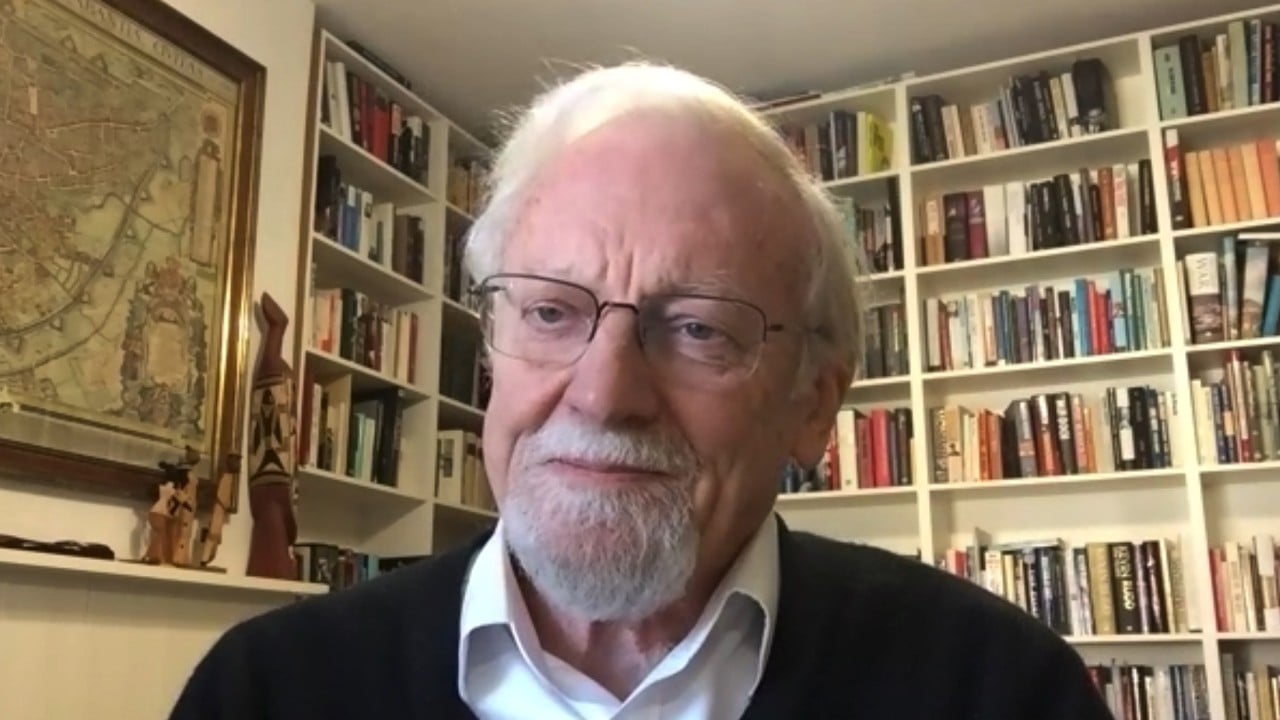The venture comes at a time of heightened tensions between Canberra and Beijing, whose relations have been strained by a raft of disputes spanning issues including
, trade, allegations of
, and
incidents targeting Asians in Australia.
In the latest test of ties, Canberra on Thursday suspended its extradition treaty with Hong Kong and announced a pathway to
for Hongkongers as a response to the city’s controversial
, prompting a rebuke from Beijing for interfering in its “internal affairs”.
While Decode China’s mission, coverage focus and details such as launch date remain under wraps, prominent Chinese-Australians known for their criticism of Beijing have been linked to the project.
Corporate records identify Feng Chongyi, an associate professor at the University of Technology, Sydney, and Wai Ling Yeung, former head of Chinese Studies at Curtin University, as directors of Sydney-based Decode China Pty Ltd.
Feng, an Australian permanent resident born in Hainan, has written critically of Chinese President
leadership and Beijing’s influence over
.
In 2017, he was interrogated and prevented from leaving China for days while on a visit to the country. Yeung has sounded the alarm about Beijing “dominating the Chinese-language media”, and researched the activities of the United Front Work Department, which manages outreach to Chinese communities abroad, for the Jamestown Foundation, a Washington-based think tank.
Maree Ma, general manager of Chinese-language media group Vision Times, which has published articles critical of the
, is listed as secretary of the company.
Feng said he did not know when Decode China would launch or what his eventual involvement would be, as the project was in the planning stages. He declined to comment on the outlet’s goals or backers, citing a need to wait for official announcements.
Yeung, Ma and the IWPR did not respond to requests for comment.
The venture appears set to shake up a Chinese-language market seen by critics as too dominated by voices friendly towards Beijing.
Many of the biggest media groups – including Sydney-based Chinese Newspaper Group and Melbourne-headquartered Global CAMG Media Group – behind the dozens of websites, newspapers and broadcasters that cater to Australia’s estimated 600,000 Mandarin speakers are part-owned by Chinese state-owned media such as China Radio International.
A 2016 study by the
Institute found Chinese-language media’s coverage of China over the past two decades had changed from being “mostly critical” to “representations that are sympathetic or even supportive”, alongside a shift in inward migration away from Hong Kong and
towards mainland China.
The study, carried out by University of Technology Sydney professor Wanning Sun, said “sensitive news” stories involving issues such as
and the Falun Gong were often ignored and Chinese propaganda had “become to some extent integrated with Chinese media in Australia”.
“As most of them are commercial organisations, they respond to commercial pressures,” said Yun Jiang, a former Australian public servant who now serves as director of the China Policy Centre.
“So they have to consider how their viewers and advertisers would respond to their content. It is possible for the Chinese government to put pressure on advertisers in order to pressure the media companies.
07:34
Australia and China cooperation too valuable for 'nonsensical' decoupling
“However, it is also possible that its attitude to the Chinese government reflects the audience of the readers, as the more recent migrants may have a more favourable view of Beijing than the earlier waves of migrants.”
Vicky Xu, an analyst with Australian Strategic Policy Institute (ASPI), said the site could fill an “urgent demand for Chinese-language news outlets here that are capable of taking a critical position”.
“The site’s popularity will be dependent on how it’s run and which stories it chooses to cover,” said Xu, whose institute is part-funded by Australia’s Department of Defence, the US State Department and Britain’s Foreign and Commonwealth Office.
“But no doubt by the sound of it the outlet has much potential.”
Xu acknowledged the site would likely face questions about bias towards Washington, but drew a distinction between funding from US sources and money from Beijing, which she accused of not respecting “separation of power and the notion of checks and balances”.
However, Jon von Kowallis, a Chinese studies professor at the University of New South Wales Sydney, said the
had already made a wide variety of information sources available to Chinese speakers in Australia.
“Chinese readers in Australia can and should consult a number of different sources and then make up their own minds what they think about what is going on in China and Australia,” von Kowallis said.
The emergence of Decode China also comes on the heels of the launch in October of APAC News, founded by businessman and consultant Marcus Reubenstein, which has attracted attention with coverage lauding the benefits of Chinese
and investment and criticising Beijing’s critics.
07:38
Australia-China trade war only 'wishful thinking', says former ambassador Geoff Raby
APAC News, which is funded by reader subscriptions and says on its website it rejects all government advertising, also describes itself as a “strong advocate for a vitally important economic relationship and for 1.2 million people of Chinese heritage who’ve made Australia their home”.
The site, which publishes in English and Chinese, was positively cited last week by state-run China Daily during a Chinese Foreign Ministry media briefing after it published an article detailing ASPI’s funding sources.
During the briefing, Chinese Foreign Ministry spokesman Zhao Lijian said ASPI, which regularly produces research critical of Beijing, had been “criticised by many, including those with vision in Australia, for what it has done”.
According to his LinkedIn profile, Reubenstein, a former television news producer who has travelled extensively in China, is the founder of consultancy Red Door Asia, billed as a facilitator of “business-to-business and business-to-people communication between China and Australasia”.
He is named as the author of a number of articles about Australia-China economic ties published by China’s state media, and has made several appearances on state-run China Global Television Network.
In an interview with CGTN in February, Sydney-based Reubenstein criticised Western media for its “negative tone” about China.
“I think one of the challenges for China – and certainly I see it constantly in mainstream media reporting on China in Australia – [is] reporting can’t separate the Chinese government, the Chinese economy, the Chinese trade situation, from the Chinese people. It’s regarded as this homogenous state,” he said.
Reubenstein declined to comment to This Week in Asia . ■
Rebel City: Hong Kong’s Year of Water and Fire is a new book of essays that chronicles the political confrontation that has gripped the city since June 2019. Edited by the South China Morning Post's Zuraidah Ibrahim and Jeffie Lam, the book draws on work from the Post's newsrooms across Hong Kong, Beijing, Washington and Singapore, with unmatched insights into all sides of the conflict.
today and get a 15% discount (regular price HKD$198). It is available at major bookshops worldwide or online through
,
,
, and
.







0 Comments:
Post a Comment
Subscribe to Post Comments [Atom]
<< Home